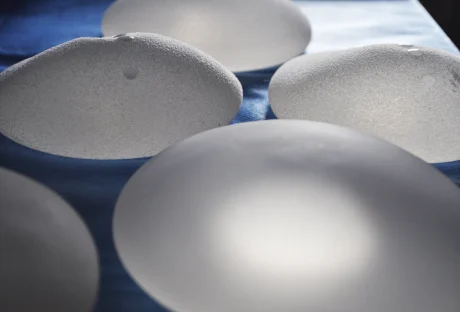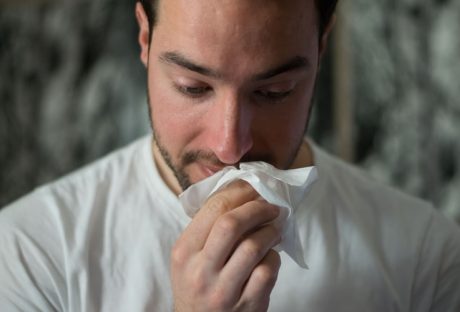Anxiety disorders are among the most common mental health conditions worldwide, affecting millions of people. While traditional treatments like therapy and medications have been effective for many, some individuals continue to struggle with anxiety symptoms. Transcranial Magnetic Stimulation (TMS) has emerged as a promising alternative for those seeking relief. In this comprehensive guide, we will delve into the world of TMS therapy for anxiety, debunk myths surrounding its effectiveness, and present the facts that can help you make an informed decision about this innovative treatment.
What Is TMS For Anxiety?
So, does TMS work for anxiety? Let’s start by demystifying TMS. Transcranial Magnetic Stimulation, or TMS, isn’t some sci-fi concept; it’s a real-life, non-invasive procedure that taps into the power of magnetic fields to gently nudge specific parts of your brain. Originally designed to help with depression, TMS has been under the research spotlight, and guess what? It’s showing some impressive potential in the realm of anxiety treatment. So, let’s keep the curiosity flowing as we explore the myths and facts surrounding this innovative therapy.
Myth Vs. Fact: TMS And Anxiety
Myth #1: TMS Is Only Effective For Depression
One common misconception about TMS is that it’s exclusively effective for treating depression. While it was initially developed and approved for depression, research and clinical experience have demonstrated its potential benefits for anxiety disorders as well. TMS works by modulating neural activity in the brain, making it a versatile tool for various mental health conditions, including anxiety.
- Fact: TMS Can Be Effective for Anxiety
Several studies and clinical trials have shown that TMS can significantly reduce symptoms in various anxiety disorders, such as Generalized Anxiety Disorder (GAD), Obsessive-Compulsive Disorder (OCD), and Social Anxiety Disorder (SAD). The key lies in targeting the right brain regions associated with anxiety, and TMS therapy can precisely accomplish this task.
Myth #2: TMS Is Painful And Unsafe
Another myth is that TMS is a painful or unsafe procedure. In reality, TMS is considered a well-tolerated and safe treatment option. During a TMS session, patients typically experience a tapping or clicking sensation on their scalp, but this discomfort is generally mild. TMS is non-invasive, meaning it doesn’t require surgery or anaesthesia, and it doesn’t induce seizures.
- Fact: TMS Is Safe and Generally Painless
TMS for anxiety is performed in an outpatient setting, and most patients can resume their daily activities immediately after a session. It has a minimal risk of side effects, with the most common being mild scalp discomfort or headache, which usually subsides quickly. TMS therapy sessions are closely monitored by trained professionals to ensure safety and effectiveness.
Myth #3: TMS Is A Quick Fix
Some individuals may expect TMS to provide instant relief from anxiety symptoms. While TMS can be highly effective, it is not a one-size-fits-all solution, and results may vary from person to person. It is essential to have realistic expectations and commit to a recommended TMS anxiety treatment plan.
- Fact: TMS Requires a Treatment Plan
TMS for anxiety typically involves a series of sessions over several weeks. The exact number of sessions and their frequency may vary based on individual needs and the severity of the anxiety disorder. Patience and consistency are essential for achieving the best results with TMS.
Myth #4: TMS Is Expensive And Not Covered By Insurance
Cost can be a significant concern for those considering TMS. However, many insurance plans now cover TMS therapy for various mental health conditions, including anxiety. It’s crucial to check with your insurance provider to determine coverage and potential out-of-pocket expenses.
- Fact: TMS May Be Covered by Insurance
Due to the increasing recognition of TMS as an effective treatment for mental health conditions, insurance coverage has expanded. Some patients may find that their insurance covers a substantial portion of TMS therapy for anxiety costs, making it more accessible.
Myth #5: TMS Is A Last Resort
Another misconception is that TMS should only be considered when all other treatment options have failed. While TMS is sometimes recommended after other treatments have been ineffective, it can also be a viable choice as a first-line treatment for anxiety disorders, especially when individuals prefer non-medication options or have concerns about potential side effects.
- Fact: TMS Can Be Considered at Any Stage
The decision to pursue TMS for anxiety should be based on an individual’s unique circumstances and preferences. It is not limited to being a last resort and can be discussed with a mental health professional at any stage of treatment planning.
Myth #6: TMS Results Are Temporary
Concerns about the temporary nature of TMS benefits can deter some from exploring this therapy. While individual responses may vary, many individuals experience long-lasting relief from anxiety symptoms after completing a full course of TMS treatment for anxiety.
- Fact: TMS Can Provide Lasting Benefits
Research has shown that the positive effects of TMS on anxiety can persist for months to years after treatment. Some individuals may require maintenance sessions, but TMS has the potential to offer enduring relief from anxiety symptoms.
Summing Up
Transcranial Magnetic Stimulation (TMS) isn’t just about tackling depression; it’s got a promising role in helping folks wrestling with anxiety disorders too. By shedding light on the myths surrounding TMS and getting the facts straight about its safety, effectiveness, and potential insurance coverage, we’re here to arm you with the knowledge you need to make smart choices about your mental health.
Now, let’s be real – TMS isn’t a magic wand that makes all your anxiety vanish in an instant. It’s more like a steady hand guiding you toward relief. It’s gentle, non-invasive, and generally well-tolerated. For many, it’s a ray of hope, offering a path to managing anxiety that doesn’t involve medications or complex procedures.
But here’s the golden rule: always lean on the expertise of a qualified mental health professional when considering TMS therapy for anxiety. They’re the compass guiding you through your unique mental health journey, helping you figure out if TMS is the right fit for your needs
Read Also:






















